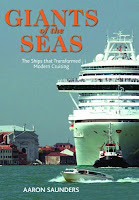Lorenzo Amoruso - footballer
Defender was most successful Italian in British football
Lorenzo Amoruso, a defender who played for teams in Italy, San Marino, England and Scotland during a career spanning almost two decades, was born on June 28, 1971 in Bari. Formerly the captain of Fiorentina, Amoruso signed for Glasgow Rangers for £4 million in 1997 and remained at the Scottish club for six seasons, during which time he won nine major trophies, which makes him the most successful Italian player in British football. The first Catholic player to captain Rangers - traditionally the club supported by Glasgow’s Protestant community - Amoruso won the Scottish Premier League title three times, the Scottish Cup three times and the Scottish League Cup three times. His total of winners’ medals dwarfs those of much higher profile Italian stars in England, including the illustrious Chelsea trio of Gianfranco Zola, Gianluca Vialli and Roberto di Matteo. Read more…
_______________________________________
Giovanni della Casa - advocate of good manners
Bishop and poet remembered for his manual on etiquette
Giovanni della Casa, the Tuscan bishop whose witty book on behaviour in polite society became a handbook for generations long after he had passed away, was born on June 28, 1503 in Borgo San Lorenzo, 30km (19 miles) north-east of Florence. Born into a wealthy family, Della Casa was educated in Bologna and followed his friend, the scholar and poet Pietro Bembo, into the church. He became Archbishop of Benevento in 1544 and was nominated by Pope Paul III as Papal nuncio to Venice. Disappointed at not having been elevated to Cardinal, however, he retired to a life of writing and reading. At some point between 1551 and 1555, living at an abbey near Treviso, he wrote Galateo: The Rules of Polite Behaviour, a witty treatise on good manners intended for the amusement of a favourite nephew. Read more…
Pietro Mennea – Olympic sprint champion
200m specialist won gold at Moscow in 1980
Pietro Mennea, one of only two Italian sprinters to win an Olympic gold, was born on June 28, 1952 in the coastal city of Barletta in Apulia. Mennea won the 200m final at the Moscow Olympics in 1980, depriving Britain's Allan Wells of a sprint double. In doing so, Mennea emulated his compatriot, Livio Berruti, 20 years earlier in Rome. He held the world record at 200m for almost 17 years, from 1979 until 1996. His time of 19.72 seconds remains the European record. It would stand as the world record for 16 years, nine months and 11 days, until Michael Johnson ran 19.66 at the US Olympic trials in 1996. As well as winning his gold medal, outrunning Britain’s Allan Wells in the last 50m, Mennea’s other great Olympic feat was to reach the 200m final at four consecutive Games, the first track athlete to do so at any distance. Read more…
_____________________________________
Walter Audisio - partisan and politician
Claimed to be the man who killed Mussolini
The partisan and later politician Walter Audisio, whose claim to be the man who executed Italy’s Fascist dictator Benito Mussolini in April 1945 is generally accepted as likely to be true, was born on June 28, 1909 in Alessandria in Piedmont. Mussolini was captured in the town of Dongo on the shore of Lake Como as he tried to flee from Italy to Switzerland, having accepted that the Axis powers were facing near-certain defeat to the Allies as the Second World War moved into its final phase. He was taken along with his entourage to the village of Giulino di Mezzegra, 20km (12 miles) south of Dongo along the lakeside road, and after spending the night under guard in a remote farmhouse was taken back into the village, where he and his mistress, Claretta Petacci, were ordered to stand against a wall. There they were shot dead by a partisan who went under the nom de guerre of "Colonnello Valerio". Read more…
______________________________________
Book of the Day: The Italian Job: A Journey to the Heart of Two Great Footballing Cultures, by Gianluca Vialli and Gabriele Marcotti
Football lies at the heart of popular culture in both England and Italy. It is played, watched, written about and talked to death by millions virtually every day of the year. But how do the characteristics of England and Italy affect the game in these two footballing nations? Do the national stereotypes of Italians as passionate, stylish lotharios and the English as cold-hearted eccentrics still hold true when they kick a ball around? In The Italian Job, for the first time, a footballer of the first rank, the late Gianluca Vialli, in conjunction with sportswriter and broadcaster Gabriele Marcotti, tackled this debate head on, providing a fascinating and highly controversial commentary on where football is now and where it's headed. They invited some of the biggest names in the sport to join in their discussion, including Sir Alex Ferguson, Jose Mourinho, Arsene Wenger, Sven Goran Eriksson, Fabio Capello and Marcello Lippi among others. Read more…Gianluca Vialli, who died from pancreatic cancer in January 2023, played for Cremona, Sampdoria and Juventus in his native Italy, for Chelsea in England, and 59 times for the Italian national team, before managing Chelsea and Watford. Milan-born Gabriele Marcotti has written and broadcast about football in Italy, the United States and England.










.jpg)


.jpg)


.jpg)

.jpg)

